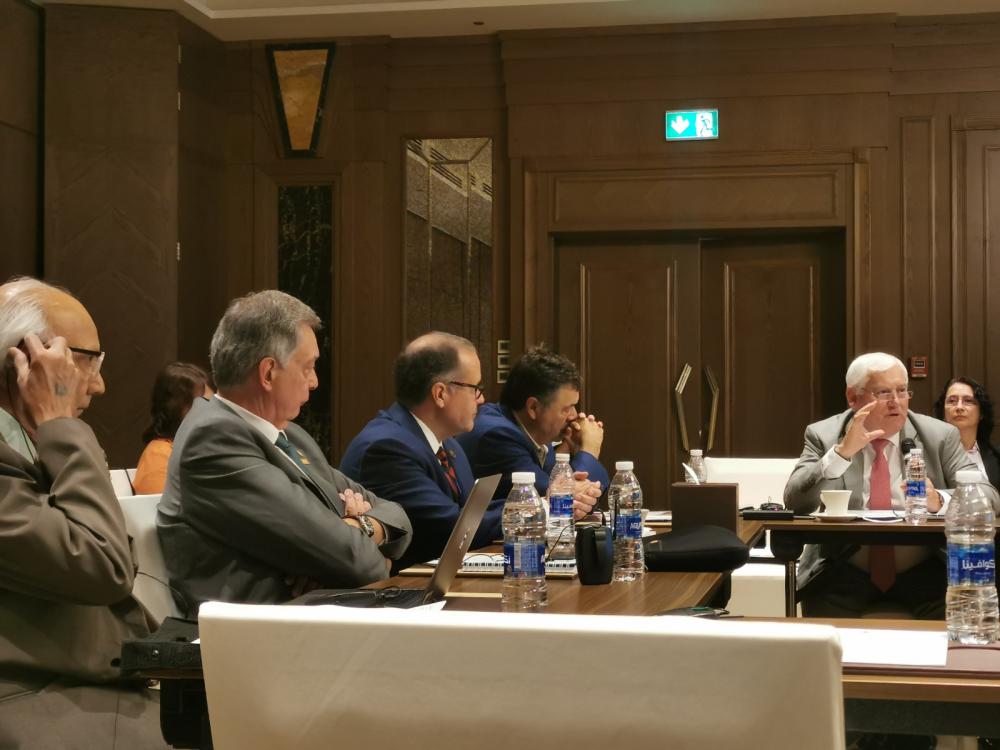The collective action of the nations of the Americas at the Conference of the Parties (COP28) in Dubai, the main forum for global negotiations to adapt to and mitigate the effects of climate change, will allow the countries of the region to achieve better results and implement the urgent tasks required to increase the sustainability of agriculture and protect water and soil.

Dubai, 10 December 2023 (IICA). The collective action of the nations of the Americas at the Conference of the Parties (COP28) in Dubai, the main forum for global negotiations to adapt to and mitigate the effects of climate change, will allow the countries of the region to achieve better results and implement the urgent tasks required to increase the sustainability of agriculture and protect water and soil.
This was stated by the head of the Secretariat of Agriculture and Rural Development (SADER) of Mexico, Víctor Villalobos, in a panel shared with other ministers and vice ministers of the sector, organized by the Inter-American Institute for Cooperation on Agriculture (IICA).
At the COP28 of the United Nations Framework Convention on Climate Change (UNFCCC), IICA, together with strategic partners from the private sector, installed the Home of Sustainable Agriculture of the Americas pavilion, where discussions were held on the most pressing issues that will allow regional agriculture, for example, to participate in green financing or access knowledge and technology exchange initiatives to increase their productivity and sustainability.
“We can do more if we do things together,” said Villalobos, one of the agricultural authorities of the hemisphere present at a meeting convened by IICA, in Dubai.
“The participation of agriculture ministers from the Americas undoubtedly raises the level of discussions in this COP, and further consolidates the regional message that agriculture is part of the solution to climate change, with producers at the center of all the decisions that are made, and using science as a basis. Although agri-food systems in the hemisphere still have room for improvement, they are by no means failed systems,” emphasized the Director General of IICA, Manuel Otero.
Focus on soils and water
Among the hemispheric initiatives promoted by IICA to reinforce mitigation and adaptation to climate change and guarantee food security for the people of the Americas, two of the most relevant ones are the Living Soils of the Americas, spearheaded jointly by the Institute and prestigious scientist Rattan Lal (Director of the Rattan Lal Center for Carbon Management and Sequestration at Ohio State University), and the Water and Agriculture initiative.
Villalobos also discussed the Mexican initiatives that pursue the same objectives regarding soil and water at the national level, and invited the rest of the countries in the region to join them, under the philosophy of collective action and collaborative work.
“We have held a hemispheric forum with different countries in Obregón, Sonora, an arid region where coincidentally the green revolution originated. In this scenario, we are calling on the entire region to join the efforts to adequately manage the soils, which must be living and managed adequately to be part of the solution to climate change, particularly with respect to carbon sequestration” he said.
The SADER Secretary also drew attention to the efforts to protect water and improve its management: “Water is an increasingly competitive and scarce resource. We will eventually need to carry out a productive reconversion, to stop producing crops that require a lot of water in regions where the resource is scarce. We will need to adequately substitute these crops with species that have less water requirements and are more tolerant to droughts, pests and diseases.”
“We cannot think about water in agriculture without considering the soil or the crops,” concluded Villalobos.
More information:
Institutional Communication Division.
comunicacion.institucional@iica.int











